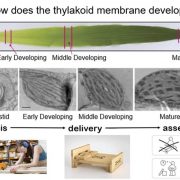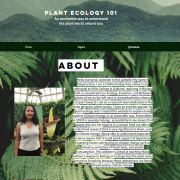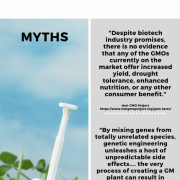Conversation with Peter G K Clark, Senior Policy Analyst
Informational Interview by Nikolaos Ntelkis, ASPB Conviron Scholar
For this assignment, I had the opportunity to talk with Peter Clark, Senior Policy Analyst at Callaghan Innovation, which is New Zealand’s governmental innovation agency. After completing a BSc and MSc in New Zealand, Peter earned his PhD in Medicinal Chemistry from University of Oxford. Then, he moved to Canada for 2 years to do a post-doc before returning to Wellington and change job sector to join the government (Ministry of Health, Ministry of Business, Innovation and Employment, Callaghan Innovation). We talked about his current career path in policy and government, as well as the differences between such a career path and academia.
I didn’t manage to record the conversation, so I will do my best to transfer my notes as good as possible.
Questions:
1. What is your job, and what does it involve?
“I work for a government agency. In this line of work, we are responsible for R&D programs to receive funding, skills programs, IP (Intellectual Property), technology incubators, among others.”
The term public policy is “the broad title which covers everything related to the government (e.g. regulation).” As a policy analyst, he talks both with the public (either directly or through societies/ groups) as well as the minister in order to provide insight on what is needed to be done, and how it should be done. It involves research and evidence collection to be able to prepare reports and recommendations on a project. Science policy covers areas like funding in the country, all government fellowships (so individual funding), intellectual property. As Peter told me for example, “all publicly funded research has to be funded and approved first.”
2. What skills do you believe are needed for this kind of job?
“Surely project management, communication skills since you talk with a very lot of people, being able to do regular briefings to those higher, good writing. You also need to think critically and analyze a given problem – you must do the research and get evidence, so problem-solving skills are needed too. Adaptability and flexibility are key traits as well, if you can go through hard problems/issues and succeed. And as with every job, it involves a lot of relationship management.”
3. Did you have to prepare to obtain this job?
“In order to get a footstep to this sector, I studied for a post-graduate certificate in public policy. It was needed to get the first job.”
Most of the skills needed for such a job can be developed during a PhD and a post-doc, and from what I understood it doesn’t require something specific to the job sector. He thinks that you learn about the job when you get into the job (which reminds me a lot of some industry sectors).
4. What skills have you acquired since starting in this position?
“It depends on your current position and project. For instance, when I was at the Ministry of Health, I learned about regulation of medicine.”
While he thinks that this topic is not the fanciest of all, it is moving to think that he can have an opinion on how medicine is regulated at country-level, and recommend what changes should be done to fit the current market and public needs.
Also, he mentioned the “duality” of such a job. On the one hand, people with a background in public policy know little of science, but have developed specialized skills (e.g. influential skills, how to persuade the public vs how to convince the minister to approve a 50M$ plan). On the other hand, people who have mobility in their career and a science background, like Peter, have a more generalized approach and know more things but with less specialty, on public policy itself. “Specialists” and “generalists” are both needed in the government in order to form teams that can cooperate effectively and succeed in any project needed. The specialists have the experience needed to handle a situation and the generalists provide valuable and out-of-the-box solutions. So, the key point I got from this is that you have to be flexible and always try to adapt to the situation.
5. What do you like about your job and how would you compare it with your experience in academia?
“In policy there a lot of more jobs and good pay. I am involved in different projects, like how to distribute money to different businesses, agritech, healthtech, forestry. I do research in out-of-my field topics, such as 3D printing and mass fermenters. My position now has nothing to with my science background.”
When compared with academia, he thinks that in academia/science he had little impact. As an example, he compared a postdoc work, where you try to make an impact by making peers to read your papers in a journal, versus helping convince politicians to fund science 50 million $ a year and recommend regulations on e.g. GMOs. There is greater impact in this aspect. Also, you can gather evidence from the public and translate it to a recommendation to help a specific group of people in need. The ultimate target group is the public, the average citizen.
This as well carries a lot of responsibility. When I asked Peter about the challenges of this job, his main point was the risk. Everywhere in public policy, you work with risk and possibilities. You have little information and often little evidence, and you must provide recommendations based on what you have. It’s a real challenge to balance risk and decision. That’s why you have to talk in-person with people from all levels, different businesses and jobs to have an informed view about the recommendation you are going to present. The three words I wrote many times in my notes were “Evidence. Logic. Analysis.”
Nonetheless, I believe that beside any challenge, the redemption you get from helping the public in such a holistic manner is something to look for in any job, either academia, industry or government.








